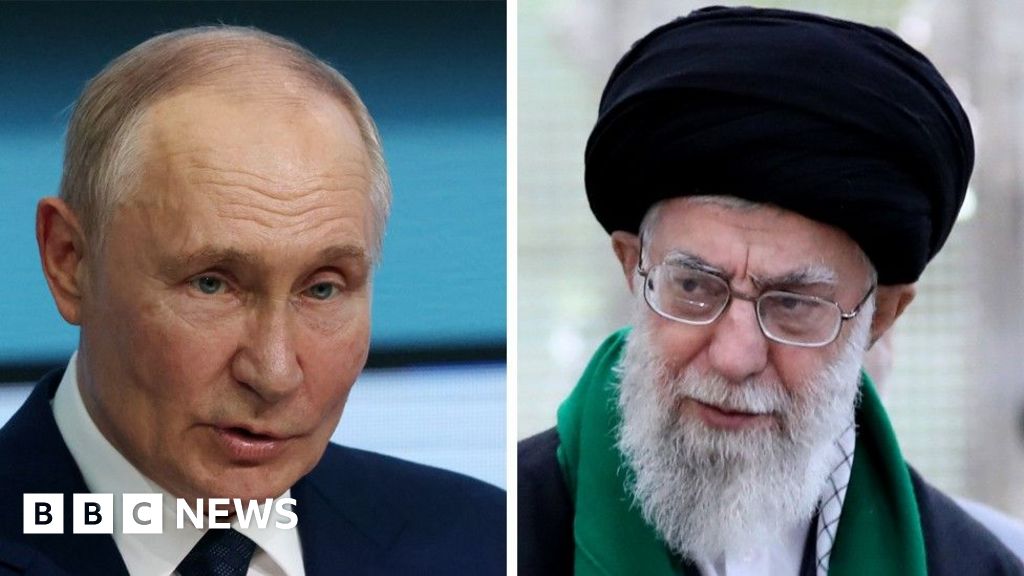Iran hiding missile, drone programs under guise of commercial front to evade sanctions
Iran turns to commercial sector to conceal its development of its ballistic missile program and evade sanctions as tensions with the West mount amid wars in Ukraine and Middle East.

FIRST ON FOX — Iran has turned to its commercial sector to conceal its development of ballistic missiles in a move to circumvent international sanctions, turning private companies into fronts for its illicit military dealings.
Sources embedded within the Iranian regime and its Islamic Revolutionary Guard Corps (IRGC), and who are also affiliated with the Iranian resistance group called the People’s Mojahedin Organization of Iran, have collected months of information on how the civilian workforce is unknowingly fueling Tehran’s war machine.
According to a report by the National Council of Resistance of Iran (NCRI) exclusively obtained by Fox News Digital, civilian companies involved with oil, gas, petrochemicals and electronic components are susceptible to Tehran’s determination to bolster its missile and drone programs, especially as tensions with the West continue to mount over its aid to Russia’s war efforts in Ukraine as well as Iran's direct and indirect attacks on Israel.
NETANYAHU CONFIRMS ISRAEL STRIKE AGAINST IRAN HIT NUKE PROGRAM DURING OCTOBER RETALIATORY STRIKES
The NCRI is sounding the alarm that at least three companies in Iran, including the Kaveh Mobadel Industrial Co., also known as Kaveh Machinery Co. (KMC), Sanaye Garma Gostar (SGG), also dubbed the Garma Gostar Industries, as well as the Sana Bargh Tavan Co., also known as SBT Electric, are tasked with producing items used to develop missile and drones.
"The Iranian regime’s missile program is not limited to the dozens of known military sites of the Aerospace Force of the IRGC or the Ministry of Defense," Alireza Jafarzadeh, deputy director of the NCRI in the U.S., told Fox News Digital. "It has built a sophisticated network of commercial companies to cover up the true extent of Tehran’s missile and drone programs, as well as evading sanctions and accountability."
Fox News Digital could not reach any of the mentioned companies for comment, but according to findings provided by embedded sources, these companies are not only subject to inspection by the Iranian Ministry of Defense but also hold contracts with the IRGC and the regime.
Despite evidence to suggest that while company executives are aware of how their businesses are being used to circumvent sanctions, the workers within the companies apparently remain uninformed despite dubious production demands.
The NCRI said it had obtained information indicating that certain items have entered the companies’ production lines that are incompatible with the business platforms.
One example highlighted in the NRCI report pointed to dozens of aluminum tanks allegedly being produced for the "dairy industry," though the report also pointed out that "using aluminum for dairy purposes is prohibited."
While there is a strong indication that the Iranian regime is doing what it can to keep its efforts to circumvent sanctions secret, even within its own borders, some products being manufactured have likely not escaped notice.
The Sana Bargh Tavan Co., a collection of electronic factories situated in an area known as Pardis Technology Park and produces elevator drives, was reportedly discovered to be manufacturing "electronic boards for missiles and drones under the guise of other industrial products for the Islamic Revolutionary Guard Corps."
The complex was also reported to be "under the control of the IRGC, and visitors' access is regulated."
Iran’s attempts to circumvent sanctions are nothing new, and despite heavy sanctions by the U.S., U.K. and the European Union (EU), Iran has continued to develop its nuclear and missile programs.
IRAN VASTLY INCREASED NUCLEAR FUEL STOCKPILE AHEAD OF TRUMP RETURN, UN AGENCY FINDS
In October 2023, U.N. sanctions on Iran, which prohibited its ability to import or export missiles, drones and other related technology without prior U.N. Security Council approval under Resolution 2231, expired.
Though the sanctions were believed to have slowed Iran’s ability to develop its missile and drone programs, it did not halt it altogether.
"The Iranian regime has relied on the expansion of its missile program to make up for its near-zero air power and minimal air defense capabilities," Jafarzadeh told Fox News Digital.
"The missile program serves two purposes for the regime: one is arming its regional proxies, such as Hezbollah, and the second, which is of strategic significance, is building missiles capable of carrying a nuclear warhead," he added.
The U.S. last year deemed that Iran’s "missile program remains one of the greatest challenges to international nonproliferation efforts," and it has since implemented several rounds of targeted sanctions.
The U.K. and the EU on Monday announced fresh sanctions on Tehran over its support for Russia, targeting its shipping industry that is allegedly used to transfer drones and missiles.
Iran has repeatedly denied sending missiles or drones to Russia for its war against Kyiv, but the use of Iranian-made Shahed drones to target soldiers and civilians alike has been well documented in Ukraine.



